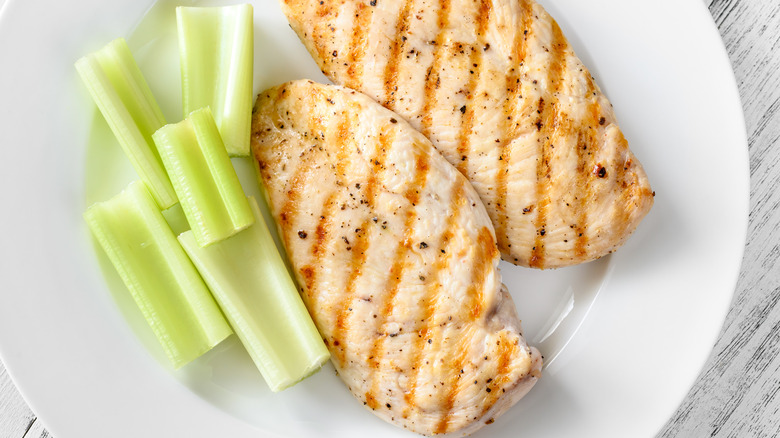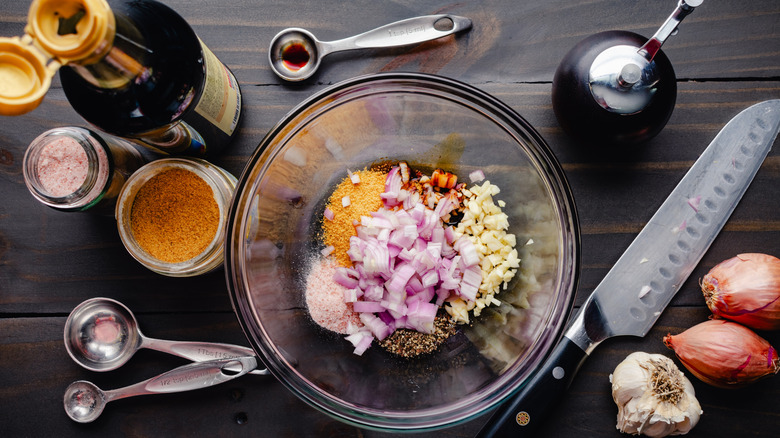How To Rescue Cooked Chicken That Turned Out Flavorless
Chicken has become one of the most consumed meats in the world. This is likely to be because chickens are more affordable to breed and buy, are kinder to the environment, and from a health perspective, the meat is higher in lean protein and has more vitamins than red meats. Chicken is also very receptive to different types of herbs, spices, and marinades because it is mild in flavor, giving it the potential to be a versatile and incredibly tasty portion on your plate.
But forget to season or marinate your chicken, don't thaw it enough, or overcook it, and you could be facing a flavorless hunk of meat that is about as appetizing as sawdust. But all is not lost if your chicken comes out bland or dry.
A cool technique called reverse marinating can save the day. This is where you add marinade flavor to your cooked meat for a few minutes after it's come out of the oven. This instantly injects moisture into it, delivers a layer of flavor, and can return your chicken to being the star of the show.
How to reverse marinate and what ingredients to use
Reverse marinating chicken is a great way to add extra flavor notes while bringing out the natural essence of the meat. Use or make a marinade that has an acidic ingredient in it, like lemon juice or vinegar, as it is the acid and salt that penetrate the top layer of your chicken.
A great, simple reverse marinade recipe is to mix together about three parts good-quality olive oil with two parts white wine vinegar, adding in a clove or two of grated garlic and some fresh thyme leaves — or another herb; rosemary would also work. Let these mingle for a few minutes while you cut up your chicken. Chopping up bigger pieces of chicken creates more surface area for your marinade to cover and sink into, taking the flavor profile further. Mix the chicken pieces in the marinade, ensuring they're fully covered. Then let it all rest for between 5 and 15 minutes before serving. Resting the meat after cooking is important anyway, so just combine it with the time it sits in the reverse marinade. If you're not keen on cutting up your chicken, poke a few holes across the surface or score it. This creates spaces for the marinade to infuse into the meat.
If you added spices or herbs to the chicken before cooking it but it still tastes bland, add more of the same spices and flavors to your reverse marinade to amplify those flavor profiles. You don't want to introduce a clashing flavor if there is already a rub or marinade on the meat.

